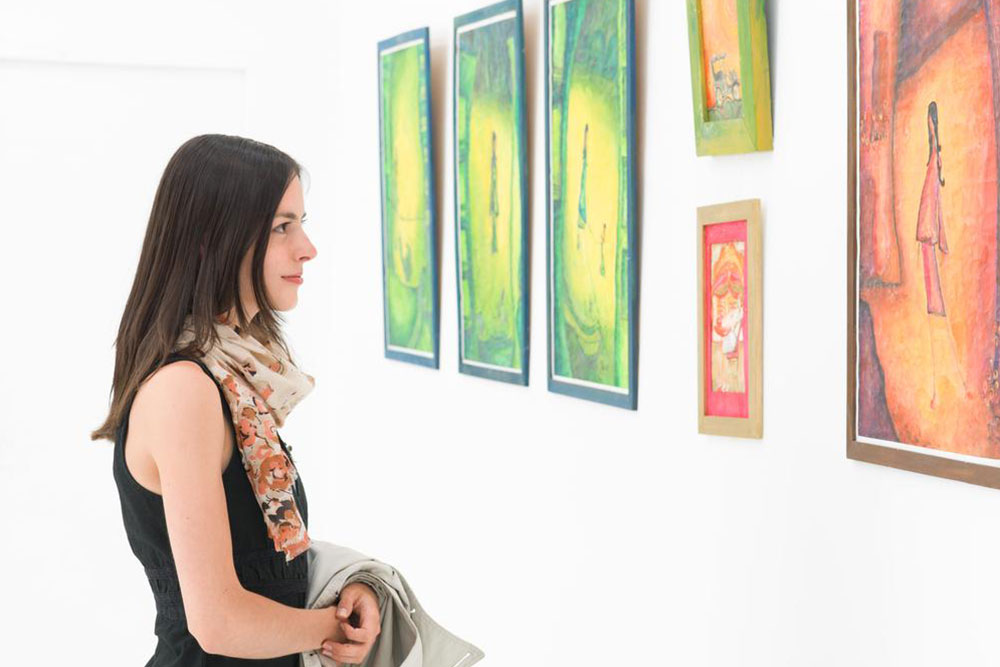Comprehensive Guide to Building a Career with a Fine Arts Degree
Discover the diverse career opportunities available to fine arts graduates, from becoming professional artists and curators to therapists and educators. This comprehensive guide provides insights and tips for success in the dynamic world of arts and culture, emphasizing skill development and industry engagement for a fulfilling career.

Unlocking Diverse Career Opportunities with a Fine Arts Education
If you're passionate about the arts and pursuing a degree in fine arts, you're opening the door to a wide array of rewarding career paths. A fine arts program not only nurtures creativity and artistic skills but also offers specialization options that can tailor your education to your career interests. Whether you aim to become a professional artist or explore roles in art management, therapy, education, or digital media, your degree provides a strong foundation. Moreover, advanced studies like master's programs can further enhance your expertise and employability in competitive fields.
In this comprehensive guide, we will explore the varied career pathways available to graduates with a fine arts degree, along with tips on how to succeed in each field and the skills needed to stand out in a competitive job market.
Professional Artist
One of the most direct applications of a fine arts degree is becoming a professional artist. This career allows you to translate your creative ideas into visual art forms such as paintings, sculptures, installations, or mixed media projects. Artists have the opportunity to showcase their work in galleries, participate in exhibitions, and sell their art to collectors or through online platforms.
The journey to becoming a successful artist involves developing a distinctive style, building a comprehensive portfolio, and establishing an individual brand. Building connections within the art community through exhibitions and social media can significantly increase your visibility. While the path can be challenging with financial uncertainties, passionate commitment, continuous skill development, and networking are crucial to making a mark in the art world.
Beyond creating, many artists diversify their income streams by offering workshops, commissions, or licensing their artwork. Staying updated with art trends and participating in art fairs and competitions can open new doors for recognition and growth.
The key to success as a professional artist lies in dedication and perseverance. Developing a unique artistic voice and a strong work ethic helps in gaining recognition and establishing a sustainable career. Embracing both traditional techniques and incorporating new digital practices can also expand your creative possibilities.
Art Curator
For those with a passion for art history, research, and curation, a career as an art curator offers a fulfilling opportunity to work behind the scenes of prominent museums and galleries. Curators are responsible for selecting, acquiring, and exhibiting artworks, creating educational programs, and engaging with the public and artists.
This role requires a deep understanding of art history, excellent organizational skills, and keen attention to detail. Strong communication abilities are essential for writing catalog essays, giving tours, and engaging with collectors and artists. Curators often participate in traveling exhibitions and collaborate with artists, making their role both dynamic and intellectually stimulating.
Gaining experience through internships, volunteering, and advanced degrees in arts administration or museology can significantly improve job prospects. Success in this field depends on a combination of scholarly knowledge, interpersonal skills, and a passion for fostering the appreciation of art.
Art Therapist
Merging creativity with mental health support, art therapy is a growing profession for fine arts graduates who enjoy helping others. Art therapists utilize creative activities to facilitate emotional expression, improve mental health, and promote healing among diverse client groups, including children, veterans, and trauma survivors.
This career path often requires additional certification or training in mental health practices and therapy techniques. Strong interpersonal skills, empathy, patience, and an understanding of psychological principles are vital. Art therapy offers a meaningful way to make a positive impact on individuals' lives while leveraging your artistic skills.
Working in hospitals, clinics, schools, or private practices, art therapists create tailored programs that help clients process emotions and develop coping strategies through artistic expression. As awareness of mental health issues increases, the demand for skilled art therapists is expected to grow.
Academic Lecturer and Researcher
If teaching and scholarly pursuits excite you, a career in academia might be your ideal path. As a university professor or lecturer in fine arts, you can inspire future generations of artists, conduct research in contemporary art, and contribute to academic publications and conferences.
This career requires advanced degrees such as a master's or Ph.D. in fine arts or art history. Developing a strong research portfolio, publishing articles, and engaging in exhibitions enhance your credibility and influence in the academic community. Teaching also involves curriculum development, mentoring students, and participating in university administrative activities.
Being involved in academic institutions allows you to shape the future of art education while continuously honing your artistic and scholarly skills. It’s a rewarding career for those dedicated to both art creation and knowledge dissemination.
Illustrator, Animator, and Digital Media Specialist
The digital age has expanded opportunities for fine arts graduates in illustration, animation, graphic design, and digital media. Many advertising agencies, publishing companies, game developers, and entertainment studios seek skilled professionals who can bring ideas to life visually.
Whether you enjoy sketching characters, designing visual content for marketing campaigns, or producing animations for films and games, these careers combine artistic talent with technical skills. Learning software like Adobe Creative Suite, Blender, or other animation tools is often essential.
Freelancing offers flexibility and diverse projects, while working with companies provides stability and access to larger platforms. Building a strong online portfolio and networking within the creative industry can significantly boost your chances of landing exciting projects and advancing your career.
To succeed in this rapidly evolving field, continuous learning and adapting to new digital tools and trends are necessary. Leveraging social media and online marketplaces can also help you reach a global audience and grow your reputation.
In conclusion, a fine arts degree opens numerous career pathways across various industries. Whether you choose to immerse yourself in creating art, curating exhibitions, supporting mental health through art, or engaging with digital media, your degree equips you with valuable skills that are highly adaptable in today’s creative economy. Developing a combination of technical abilities, networking, and continuous learning will be key to building a successful and fulfilling career in the arts.




